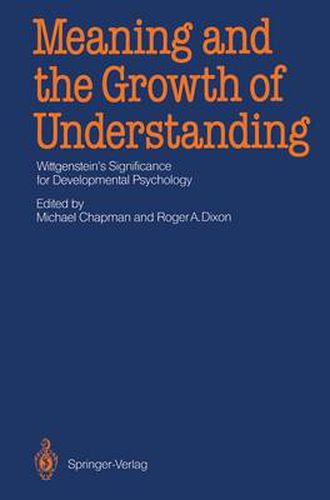Readings Newsletter
Become a Readings Member to make your shopping experience even easier.
Sign in or sign up for free!
You’re not far away from qualifying for FREE standard shipping within Australia
You’ve qualified for FREE standard shipping within Australia
The cart is loading…






This title is printed to order. This book may have been self-published. If so, we cannot guarantee the quality of the content. In the main most books will have gone through the editing process however some may not. We therefore suggest that you be aware of this before ordering this book. If in doubt check either the author or publisher’s details as we are unable to accept any returns unless they are faulty. Please contact us if you have any questions.
In the beginning it seemed to us that someone was missing and that something was amiss. He was often mentioned, occasionally discussed, but seldom cited or credited explicitly. And when he was acknowl edged, it was sometimes for reasons that seemed anachronistic and misleading. His influence could be felt in a number of areas of our dis cipline, but few scholars seemed to know just how, just where, and to what extent. We discovered, almost accidentally, that we shared an in terest in his legacy, in unravelling at least some portion of this riddle. Shortly thereafter, we began discussing ways in which, by pooling our resources with those of interested others, we could move closer to a res olution. Put simply, the protagonist of this riddle is Ludwig Wittgenstein (1889-1951), the son of a wealthy Viennese industrialist, the influential Cantabrigian philosopher, the rural Austrian schoolteacher. And the subject of our study is his largely unexplored legacy for developmental psychology. Although Wittgenstein’s thought seemed to hold special promise for the study of human development, the philosopher and his work could walk virtually unrecognized through the landscape of con temporary developmental issues.
$9.00 standard shipping within Australia
FREE standard shipping within Australia for orders over $100.00
Express & International shipping calculated at checkout
This title is printed to order. This book may have been self-published. If so, we cannot guarantee the quality of the content. In the main most books will have gone through the editing process however some may not. We therefore suggest that you be aware of this before ordering this book. If in doubt check either the author or publisher’s details as we are unable to accept any returns unless they are faulty. Please contact us if you have any questions.
In the beginning it seemed to us that someone was missing and that something was amiss. He was often mentioned, occasionally discussed, but seldom cited or credited explicitly. And when he was acknowl edged, it was sometimes for reasons that seemed anachronistic and misleading. His influence could be felt in a number of areas of our dis cipline, but few scholars seemed to know just how, just where, and to what extent. We discovered, almost accidentally, that we shared an in terest in his legacy, in unravelling at least some portion of this riddle. Shortly thereafter, we began discussing ways in which, by pooling our resources with those of interested others, we could move closer to a res olution. Put simply, the protagonist of this riddle is Ludwig Wittgenstein (1889-1951), the son of a wealthy Viennese industrialist, the influential Cantabrigian philosopher, the rural Austrian schoolteacher. And the subject of our study is his largely unexplored legacy for developmental psychology. Although Wittgenstein’s thought seemed to hold special promise for the study of human development, the philosopher and his work could walk virtually unrecognized through the landscape of con temporary developmental issues.